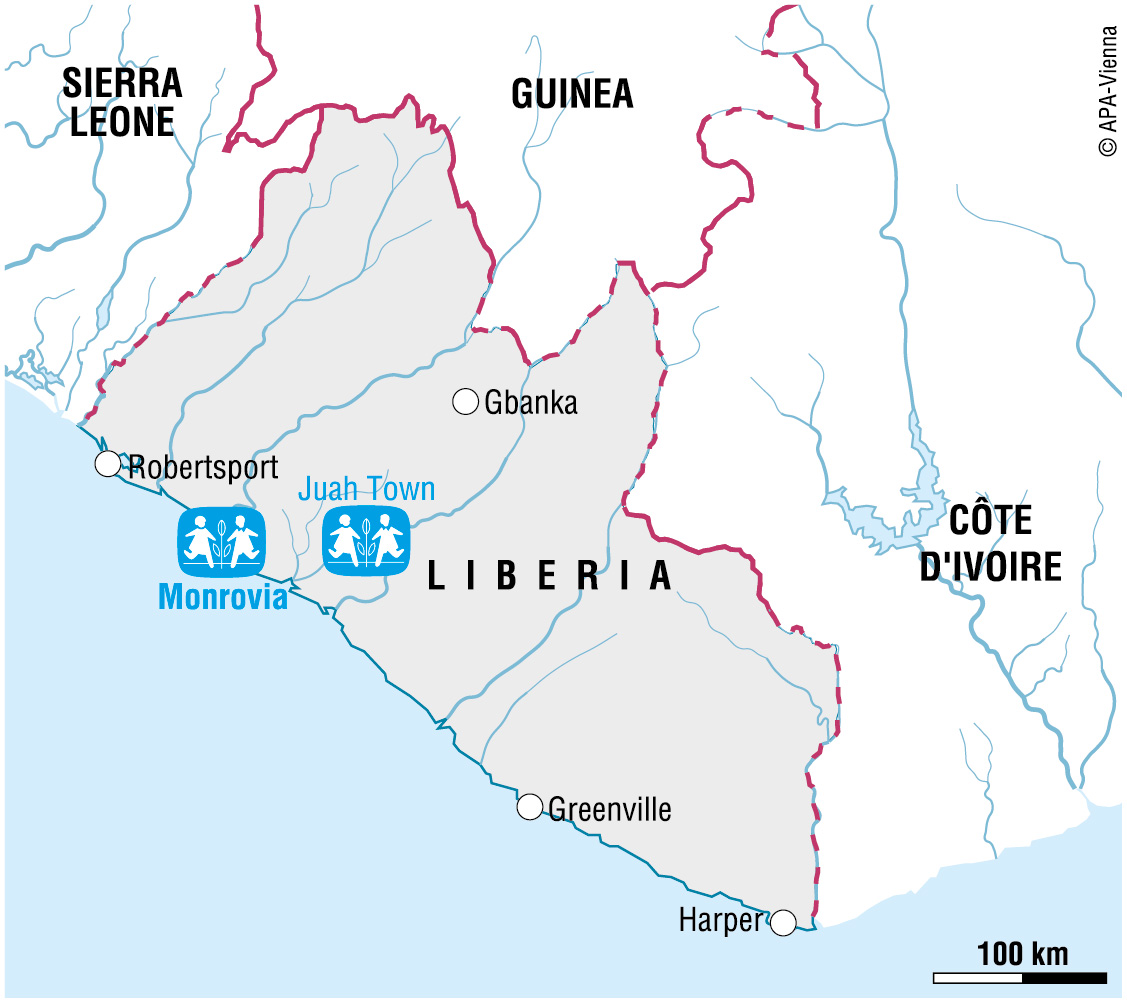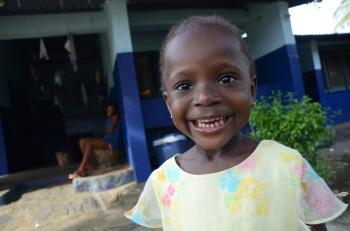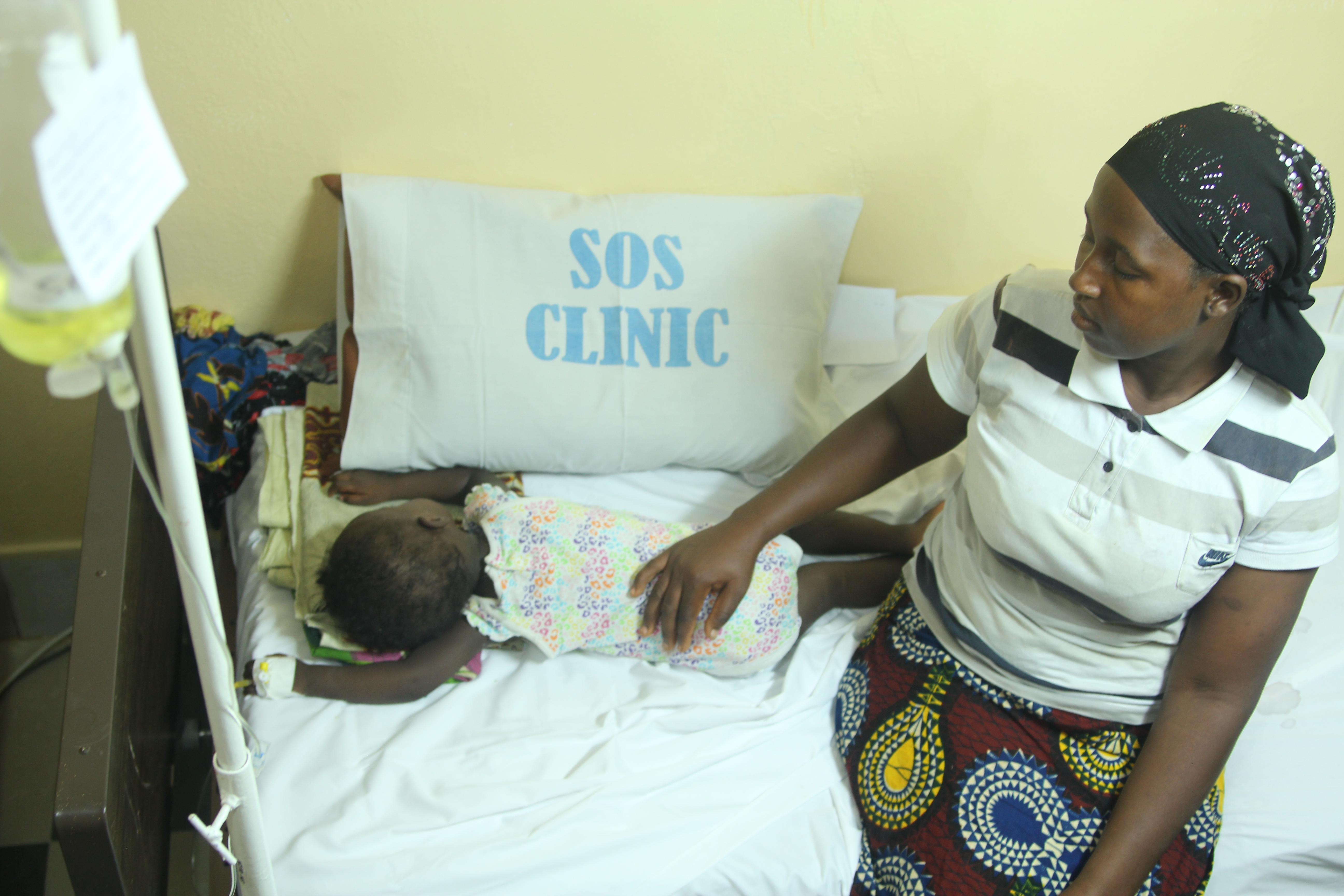
Vi er i Liberia
Decades of political instability have destroyed the infrastructure
-56579_jpg_1.jpg?width=800)
The population of Liberia is about 4.5 million (2015 estimate). The capital Monrovia is the largest city and home to around 25 per cent of Liberia's population.
In recent decades, Liberia has been shaped by political instability. During the 1980s and 1990s the country went through periods of authoritarian rule, oppression and a cruel, long-lasting civil war. Around 250,000 were killed and many more were displaced.
The Liberian civil war essentially destroyed the country's infrastructure and led to crippling poverty among Liberia's population. Despite serious efforts by the current administration, the rebuilding of war-torn Liberia has proved to be an extremely difficult task.
The Ebola virus epidemic which affected Liberia between mid-2014 and early 2016 also had devastating effects on the lives of families. According to estimates from the World Health Organisation, the virus killed more than 4,800 people. However, many more were affected when the economy was paralysed. In order to avoid the virus from spreading, the movement of people was restricted, which meant that people couldn't go to work or sell their produce in the markets.
The country is making a slow recovery from the Ebola epidemic
Liberia's health care also faces serious challenges. Medical services were seriously strained when the Ebola epidemic hit the country, and they struggled to deal with the huge number of cases. Since then, the health service has found it hard to cope with its normal activities such as providing maternal care, immunization campaigns, as well as the treatment and monitoring of common ailments such as malaria and malnutrition. Liberia also has a high rate of HIV/AIDS: 1.2 per cent of adults have HIV/AIDS. The Ebola epidemic has affected their treatment and care too.
Around 36 per cent of the population suffer from chronic malnutrition. Those living in rural areas are most affected. The Ebola outbreak made the situation worse for many families: parents were unable to go to markets, and food prices rose due to the scarcity of goods.
Children and young people are in need of education and training
-71295.jpg?width=800)
There are 2.1 million children under the age of 18 living in Liberia. Decades of conflicts and the recent Ebola epidemic have negatively affected the lives of children – many have been displaced from their home and lost parental care.
Although the government has invested in schools and offered free primary education, only 68 per cent finish primary school. In many cases the parents can't afford the extra costs – transport, clothing, school books and materials – of schooling. Many families are so poor that they have to rely on their children's contribution to the family finances – an estimated 21 per cent of children work.
Since it is a well-known fact that reducing poverty among young people contributes to stability and peace, there have been substantial efforts to increase their job opportunities. But more needs to be done; according to some estimates, about 85 per cent of young people do not have a job.
SOS Children's Villages in Liberia
Strengthening Families: We work with local organisations to support families who are at risk of breaking down. Each family needs different help and, among other services, we offer material assistance so that children can receive nutritious food and go to school, as well as counselling and training so that parents can care for their families.
Care in SOS families: If, in spite of all assistance, children can't live with their families, they find a new home in an SOS family in one of the SOS Children's Villages.
Education: Due to the shortage of educational facilities in the country, we run kindergartens and primary and secondary schools in Monrovia and Juah Town.
Medical Care: Due to the scarcity of medical care in the country, SOS Children's Villages runs a medical centre in Monrovia. We increased our services during the Ebola outbreak.
Support for young people: It is extremely difficult for young people to become independent. We provide young people who have lost parental care with support and training until they are able to live independently.
Emergency programme: In 2014, SOS Children’s Villages launched an emergency programme in response to the Ebola virus. We provided food, non-food items and medical care. We focused on caring for children, especially those who had lost parental care. Once the country was declared Ebola-free, we continued to support affected children and families.
Advocacy: SOS Children's Villages works with the government and local agencies to improve the situation of children and young people in the country.